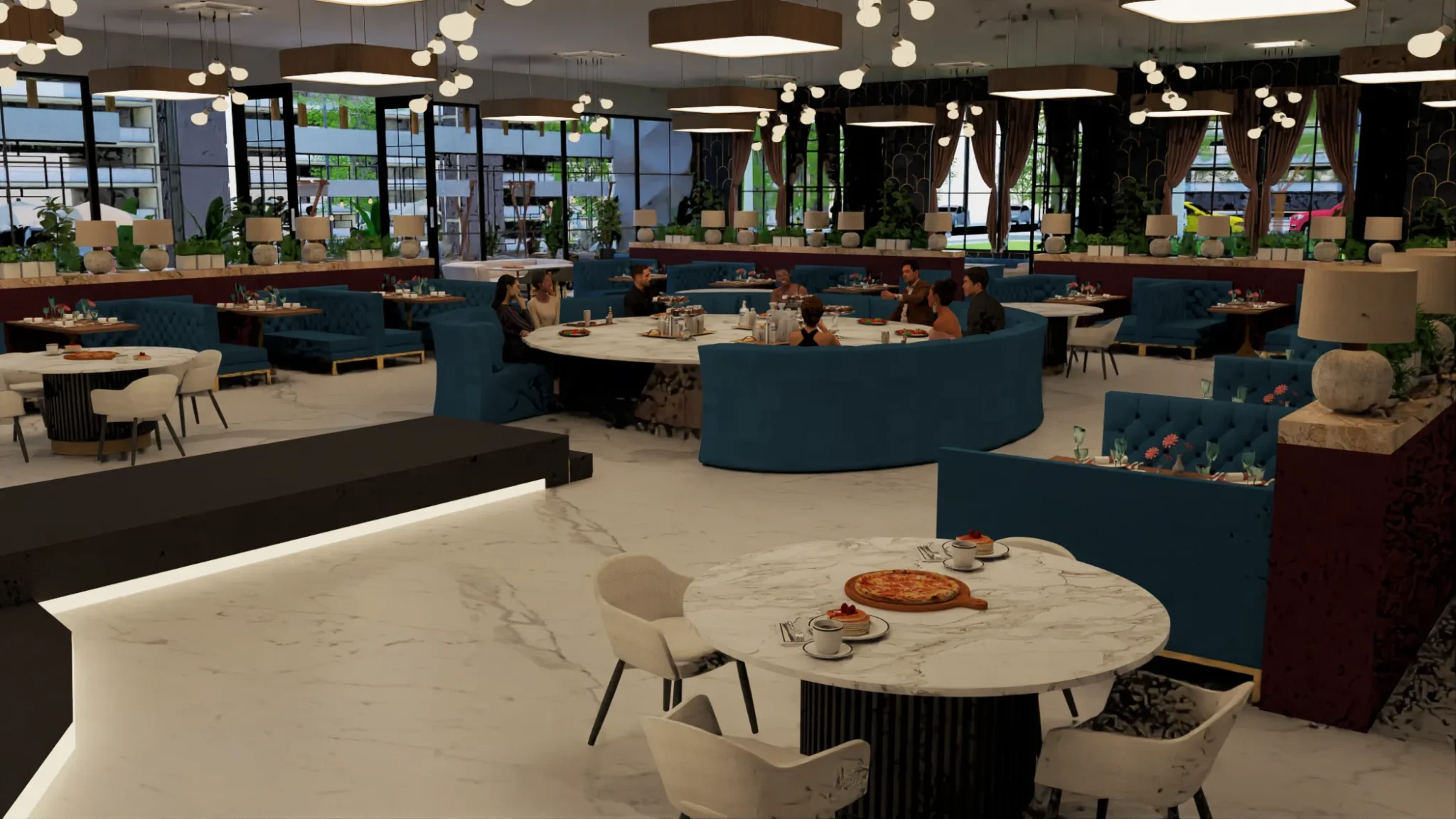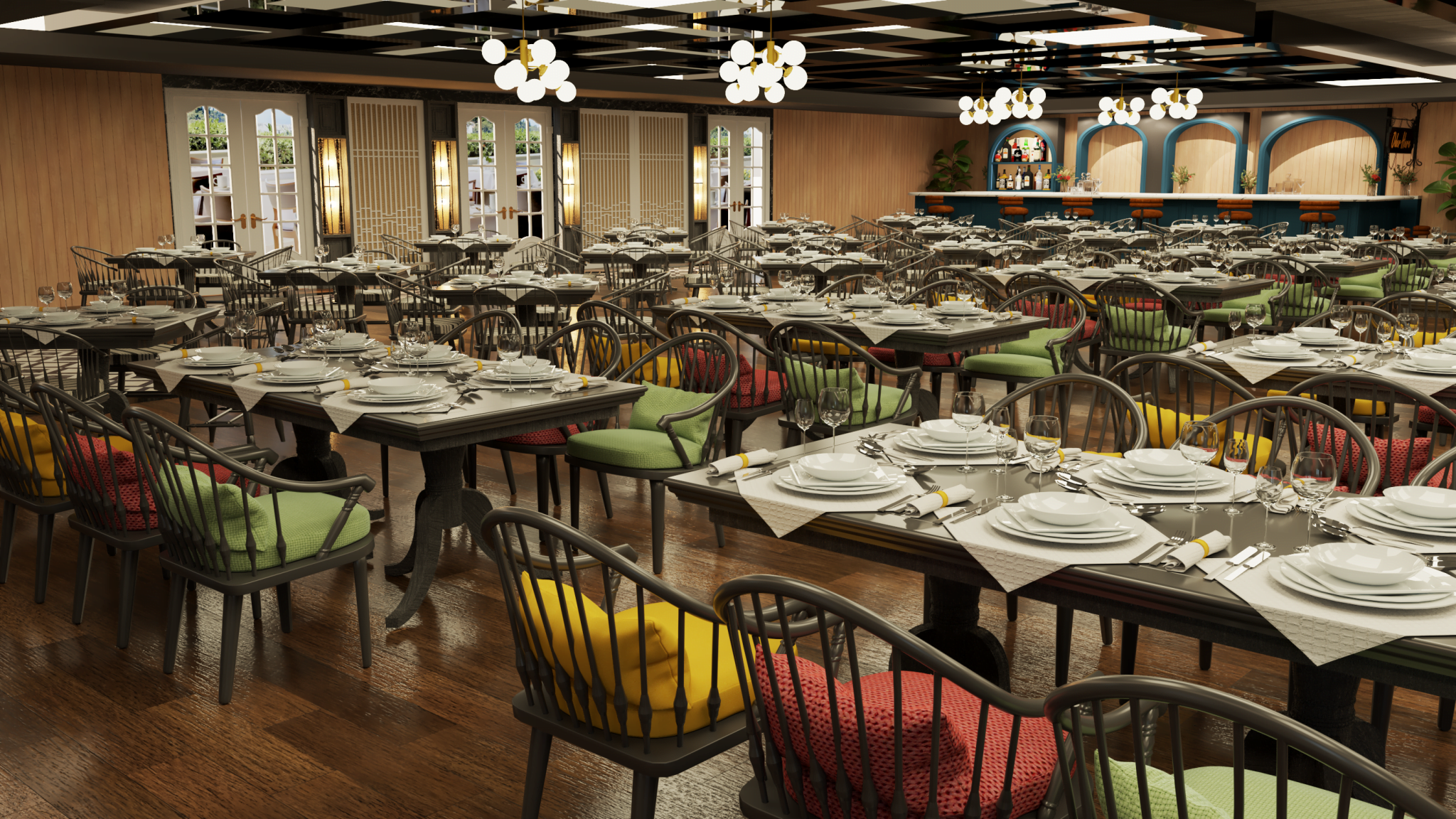Ever wondered why certain hotels could give such a rich experience while others seem bland and unmotivated?In a city like Dubai, where every corner tells a tale of luxury and the skyline battles the stars, the hospitality business has an incredible difficulty: standing out. How can a hotel make a lasting impact when new hotels pop up like desert blossoms and guests search for unique, one-of-a-kind stays?
The solution is found in 3D technologies. From custom furnishings to stunning lobbies, this modern invention is rewriting the script for hotel decor. Still, why is it such a game-changer and exactly how does it work? Let’s delve in and see how 3D technology is changing hotel interior design in Dubai.
Introducing 3D Technology for Hotel Interiors
In hotel interiors, 3D technology is the application of cutting-edge design, creation, and implementation techniques like virtual reality, 3D printing, and 3D visualization. It’s about redefining what’s possible, not only about sophisticated tools.
From a computer model, 3D printing layer by layer generates actual objects. In hotels, it’s employed for creating elaborate furnishings, art projects, even architectural details. Designers utilize software to produce realistic representations or animations of places before they are constructed, therefore enabling clients to view the final design in great detail. Imagine donning a helmet and “walking” across your hotel room prior to construction. VR enables this degree of immersion, therefore guiding stakeholders in their decisions. Famous interior design companies leverage these cutting-edge technologies to bring ambitious concepts to life with precision and creativity.
- Customized, physical objects produced by 3D printing have unmatched detail.
- Tools for visualizing assist close the distance between imagination and actuality.
- Virtual reality offers an immersive sample of yet to be constructed environments.
Typical Problems Dubai Hotel Interior Designers Face
Designing Dubai hotel interiors goes beyond simple aesthetic appeal. It’s about negotiating a labyrinth of obstacles to produce places that are sumptuous, useful, and unforgettable.
- Traditional techniques often include costly materials and labor-intensive procedures, therefore increasing the expenses.
- Without a good preview, it is difficult to picture how a design will feel and look. This can cause expensive blunders or unmet expectations.
- Customizing Constraints: While using standard techniques can help one achieve true customisation, especially in relation to unusual concepts, this can be limited.
- Hotels lose money during protracted renovations when rooms or amenities are unavailable.
- Sustainability Pressures: Though finding sustainable materials can be difficult, demand for environmentally friendly designs is rising.
3D Technology is the Solution for These Problems
Let’s now observe how 3D technologies squarely address these challenges.
- 3D printing allows designers to construct complex objects without using costly molds or materials, therefore saving costs in design and manufacturing. Some Dubai hotels, for example, now save time and money by using 3D-printed furniture. Printing one piece of custom furniture in days instead of weeks can save up to 50% of the expenses.
- Designers can show photorealistic renderings or VR walkthroughs, therefore enabling hotel owners to virtually view the design before committing. This guarantees harmony with the vision and helps to decrease mistakes.
- Customizing and personalizing: 3D technology lets hotels’ own theme guide custom designs. There are countless alternatives for both customized guestroom décor and a sculptural centerpiece for a foyer.
- In the hotel business, time equals money. Faster renovations By accelerating manufacturing times, 3D printing lets renovations be finished in weeks rather than months. Using this technology, Dubai hotels including the XYZ Luxury Resort have experienced a 40% decrease in renovation time.
- Using just the precise amount of material required, 3D printing reduces waste. Recycled plastics or biodegradable polymers are among the environmentally friendly materials being used more and more in line with world sustainability objectives.
Opportunities of 3D Technology in Hotel Interiors of Dubai
Even more fascinating developments in 3D technology seem ahead in the coming decade.
- Faster, more flexible 3D printers of the next generation will enable bigger and more intricate creations.
- VR technology will develop to incorporate additional sensory components like touch and scent, so virtually experiencing almost seems to be like reality.
- Perfect Integration: Even mid-range hotels will use 3D solutions as the technology is more available, essentially leveling the playing field.
- Dubai’s status as a pioneer in premium hospitality means it will probably keep leading the charge, redefining what’s feasible in hotel architecture.
Difficulties and Restraints Regarding 3D Technology Implementation in Hotel Interior Design
Although the advantages are clear-cut, one should take some thought regarding:
- Adoption Costs: Smaller hotels may be discouraged by initial equipment and training expenditures.
- Though this is fast changing, not all 3D printing materials are fit for luxury uses.
- Integrating virtual reality and 3D models with conventional design techniques can provide technical difficulties.
Finally
3D technology is a revolution, not just a trend. It’s changing how Dubai’s hotels create their interiors by tackling issues with pricing, customizing, visualization, speed, and sustainability. From custom furniture to immersive guest experiences, the opportunities are almost infinite.
Adopting this technology is not only a need for hoteliers to stay competitive in one of the most active businesses worldwide; it also is not just a choice. The future of hospitality is 3D and here.
Frequently Asked Questions
In hotel decor, what is 3D printing?
Designed for custom furniture, décor, and architectural details, this technology generates layer by layer actual objects from a digital model.
How might 3D technology shorten the period of renovation?
Using 3D printing to expedite manufacturing processes and VR capabilities to enable rapid visualization adjustments with rendering and editing help to speed things along.
Is 3D technology sustainable?
Indeed, it is a greener choice for hotel construction since it reduces waste and supports environmentally friendly material use.
Could lesser Dubai hotels afford 3D technology?
Although initial expenses are considerable, the long-term savings in time, materials, and customizing make it more and more feasible.


